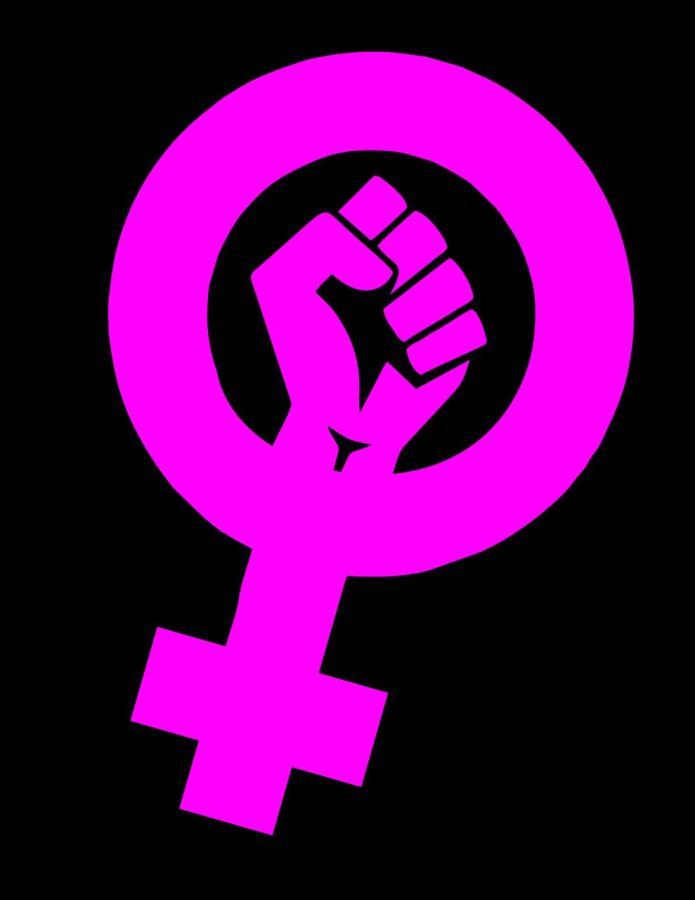The Future Is Female: Power of a Women’s College Education
June 21, 2022
The truth is, we live in a patriarchal society. All we’ve ever known is a world designed by men, for men, a world that today continues to be dominated by men. But picture this: a space specifically designed to empower women to become the best versions of themselves, where women hold every position of power and influence, where there is no discrimination based on gender. Essentially, a space where women empower women. A women’s college.
Unfortunately, sexism continues to exist today. Although we’ve made significant progress, we still live in a world where people will be treated differently simply because of which gender they belong to. But at a women’s college, there is no sexism in the classroom. This is one of the only spaces in the world where gender doesn’t actually have an impact on how much influence you can have or how seriously other people take you. There’s a certain freedom that comes with being in a space where you’re free from discrimination based on gender, a freedom that is unique to women’s colleges.
But sexism doesn’t simply manifest itself in how others see and treat women: sexism is internalized as well. Internalized sexism is when women and girls believe and project sexist attitudes and stereotypes themselves. As Gloria Steinem said, “You could not subordinate half the human race unless some of that was internalized.” Yes, women can be sexist to women too. And internalized sexism is a large part of why many women steer away from women’s colleges in the first place. But attending a women’s college means being in a space where smart, powerful women break down stereotypes and embrace who they are unapologetically.
The very idea of a college only for women can be seen as exclusionary. But women’s colleges actually offer admission to transgender women. Applicants assigned male at birth who identify as women and applicants assigned female at birth who identify as nonbinary are welcome and important members of the women’s college community. Women’s colleges aren’t only about uplifting women: they extend an intersectional and inclusive teaching of feminism.
When people discuss the idea of a women’s college education, often you’ll hear the words: “But there are NO men…” A common myth about women’s colleges is that if you attend one, you’ll only be interacting with women for the next four years of your life. This is NOT the case. Most women’s colleges participate in educational partnerships or consortiums with other local colleges. Students at all schools are free to take classes and participate in extracurriculars at any institution within the partnership. Barnard College in New York, NY, is in a partnership with Columbia University. (And some Barnard majors even offer a Columbia dual degree!) Wellesley College in Boston, MA, is in a partnership with Harvard and MIT. Smith College and Mount Holyoke in MA are part of the Five College Consortium including Amherst College, UMass Amherst, and Hampshire College. Scripps College in Claremont, CA, is part of the Claremont Consortium, which includes Pomona, Harvey Mudd, Claremont McKenna, and Pitzer. So, you’re turned off by the thought of being limited to interacting only with female identifying students, don’t be. If you choose to, you can still experience a co-ed education at other institutions. At a women’s college, you’ll get the best of both worlds: a focused, tight-knight, small college experience along with the opportunities that come with being connected to a larger institution.
There are still certain fields that are male dominated, including finance, engineering, and software development. As a woman in these fields, it’s not difficult to feel stifled or as though you’ll need to jump through additional barriers simply on the basis of your gender. But at a women’s college, every course of study is female dominated. This makes it so that women’s college students have the unique opportunity to become leaders in their respective fields and academic disciplines.
But at women’s colleges, it’s never simply about individual opportunities. At a women’s college, you will belong to a community of strong and brilliant women, a community that you will continue belonging to well after graduation. Graduates of women’s colleges encourage each other to be their best and support one another in their careers. Women’s colleges have incredibly powerful alumni networks and yes, incredibly powerful alumni. Two out of the only three women Secretaries of State in US history are alumni of Wellesley College: Hillary Clinton and Madeleine Albright. A few other notable alumni include Nancy Pelosi (Trinity Washington College), Meryl Streep (Vassar College-formerly all women’s), and Julia Child (Smith College).
A women’s college experience is uniquely empowering. Only 2% of college graduates come from women’s colleges, but these graduates are more than twice as likely to receive doctoral degrees. And beyond continuing education, the career benefits of a women’s college education speak for themselves: more than 20% of women in Congress and 33% of women on Fortune 1000 boards graduated from a women’s college (“Why a Women’s College,” a 2014 study by Collegewise counselors.) How is this possible? Well, as Mount Holyoke’s mission states, “It’s not about equal opportunity to take on leadership roles. It’s about every opportunity.” Attending a women’s college provides unparalleled opportunities to see yourself reflected in every position of power but also empowers you to take on those positions of power yourself, allowing you to free yourself from both institutional and internalized sexism.






